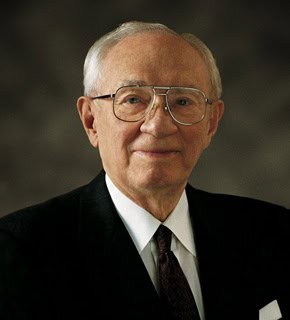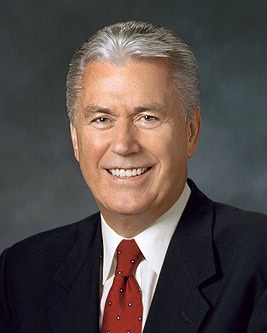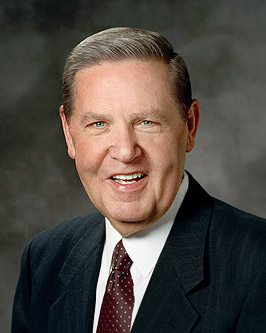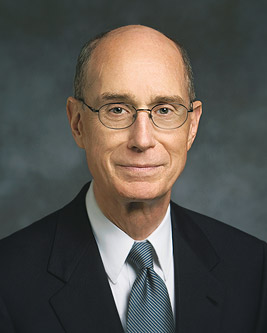Nonjudgmental
SEARCH BY TITLE
 Becometh As a Child
Becometh As a Child
Church members will live in this wheat-and-tares situation until the Millennium. Some real tares even masquerade as wheat, including the few eager individuals who lecture the rest of us about Church doctrines in which they no longer believe. They criticize the use of Church resources to which they no longer contribute. They condescendingly seek to counsel the Brethren whom they no longer sustain. Confrontive, except of themselves, of course, they leave the Church, but they cannot leave the Church alone. Like the throng on the ramparts of the “great and spacious building,” they are intensely and busily preoccupied, pointing fingers of scorn at the steadfast iron-rodders. Considering their ceaseless preoccupation, one wonders, Is there no diversionary activity available to them, especially in such a large building—like a bowling alley? Perhaps in their mockings and beneath the stir are repressed doubts of their doubts. In any case, given the perils of popularity, Brigham Young advised that this “people must be kept where the finger of scorn can be pointed at them”. Therefore, brothers and sisters, quiet goodness must persevere, even when, as prophesied, a few actually rage in their anger against that which is good. Likewise, the arrogance of critics must be met by the meekness and articulateness of believers. If sometimes ringed by resentment, we must still reach out, especially for those whose hands hang down. If our shortcomings as a people are occasionally highlighted, then let us strive to do better.
 Let Not Your Heart Be Troubled
Let Not Your Heart Be Troubled
The tragedy is that this spirit is epidemic. Criticism, fault-finding, evil speaking—these are of the spirit of the day. They are in our national life. To hear tell these days, there is nowhere a man of integrity among those holding political office. In many instances this spirit has become the very atmosphere of university campuses. The snide remark, the sarcastic gibe, the cutting down of associates—these, too often, are of the essence of our conversation. In our homes wives weep and children finally give up under the barrage of criticism leveled by husbands and fathers. Criticism is the forerunner of divorce, the cultivator of rebellion, sometimes a catalyst that leads to failure. Even in the Church it sows the seed of inactivity and finally apostasy. I come this morning with a plea that we stop seeking out the storms and enjoy more fully the sunlight. I am suggesting that we “accentuate the positive.” I am asking that we look a little deeper for the good, that we still our voices of insult and sarcasm, that we more generously compliment virtue and effort. I am not asking that all criticism be silenced. Growth comes of correction. Strength comes of repentance. Wise is the man who can acknowledge mistakes pointed out by others and change his course. I am not suggesting that our conversation be all honey and blossoms. Clever expression that is sincere and honest is a skill to be sought and cultivated. What I am suggesting and asking is that we turn from the negativism that so permeates our society and look for the remarkable good in the land and times in which we live, that we speak of one another’s virtues more than we speak of one another’s faults, that optimism replace pessimism, that our faith exceed our fears.
 “Lord, Is It I?”
“Lord, Is It I?”
Once there was a man who enjoyed taking evening walks around his neighborhood. He particularly looked forward to walking past his neighbor’s house. This neighbor kept his lawn perfectly manicured, flowers always in bloom, the trees healthy and shady. It was obvious that the neighbor made every effort to have a beautiful lawn. But one day as the man was walking past his neighbor’s house, he noticed in the middle of this beautiful lawn a single, enormous, yellow dandelion weed. It looked so out of place that it surprised him. Why didn’t his neighbor pull it out? Couldn’t he see it? Didn’t he know that the dandelion could cast seeds that could give root to dozens of additional weeds? This solitary dandelion bothered him beyond description, and he wanted to do something about it. Should he just pluck it out? Or spray it with weed killer? Perhaps if he went under cover of night, he could remove it secretly. These thoughts totally occupied his mind as he walked toward his own home. He entered his house without even glancing at his own front yard—which was blanketed with hundreds of yellow dandelions. . . .Does this story remind us of the words of the Savior? “Why beholdest thou the mote that is in thy brother’s eye, but considerest not the beam that is in thine own eye? … “… First cast out the beam out of thine own eye; and then shalt thou see clearly to cast out the mote out of thy brother’s eye.” This business of beams and motes seems to be closely related to our inability to see ourselves clearly. I’m not sure why we are able to diagnose and recommend remedies for other people’s ills so well, while we often have difficulty seeing our own.
 The Other Prodigal
The Other Prodigal
But God does not work this way. The father in this story does not tantalize his children. He does not mercilessly measure them against their neighbors. He doesn’t even compare them with each other. His gestures of compassion toward one do not require a withdrawal or denial of love for the other. He is divinely generous to both of these sons. Toward both of his children he extends charity. I believe God is with us the way my precious wife, Pat, is with my singing. She is a gifted musician, something of a musical genius, but I couldn’t capture a musical note with Velcro. And yet I know she loves me in a very special way when I try to sing. I know that because I can see it in her eyes. They are the eyes of love. One observer has written: “In a world that constantly compares people, ranking them as more or less intelligent, more or less attractive, more or less successful, it is not easy to really believe in a [divine] love that does not do the same. When I hear someone praised,” he says, “it is hard not to think of myself as less praiseworthy; when I read about the goodness and kindness of other people, it is hard not to wonder whether I myself am as good and kind as they; and when I see trophies, rewards, and prizes being handed out to special people, I cannot avoid asking myself why that didn’t happen to me.” If left unresisted, we can see how this inclination so embellished by the world will ultimately bring a resentful, demeaning view of God and a terribly destructive view of ourselves. Most “thou shalt not” commandments are meant to keep us from hurting others, but I am convinced the commandment not to covet is meant to keep us from hurting ourselves.
 Our Hearts Knit As One
Our Hearts Knit As One
Happily I am seeing more and more skillful peacemakers who calm troubled waters before harm is done. You could be one of those peacemakers, whether you are in the conflict or an observer. One way I have seen it done is to search for anything on which we agree. To be that peacemaker, you need to have the simple faith that as children of God, with all our differences, it is likely that in a strong position we take, there will be elements of truth. The great peacemaker, the restorer of unity, is the one who finds a way to help people see the truth they share. That truth they share is always greater and more important to them than their differences. You can help yourself and others to see that common ground if you ask for help from God and then act. He will answer your prayer to help restore peace, as He has mine. That same principle applies as we build unity with people who are from vastly different backgrounds. The children of God have more in common than they have differences. And even the differences can be seen as an opportunity. God will help us see a difference in someone else not as a source of irritation but as a contribution. The Lord can help you see and value what another person brings which you lack. More than once the Lord has helped me see His kindness in giving me association with someone whose difference from me was just the help I needed. That has been the Lord’s way of adding something I lacked to serve Him better. That leads to another principle of unity. It is to speak well of each other. Think of the last time you were asked what you thought about how someone else was doing in your family or in the Church. It happened to me more than once in the past week. Now, there are times we must judge others. Sometimes we are required to pronounce such judgments. But more often we can make a choice.
